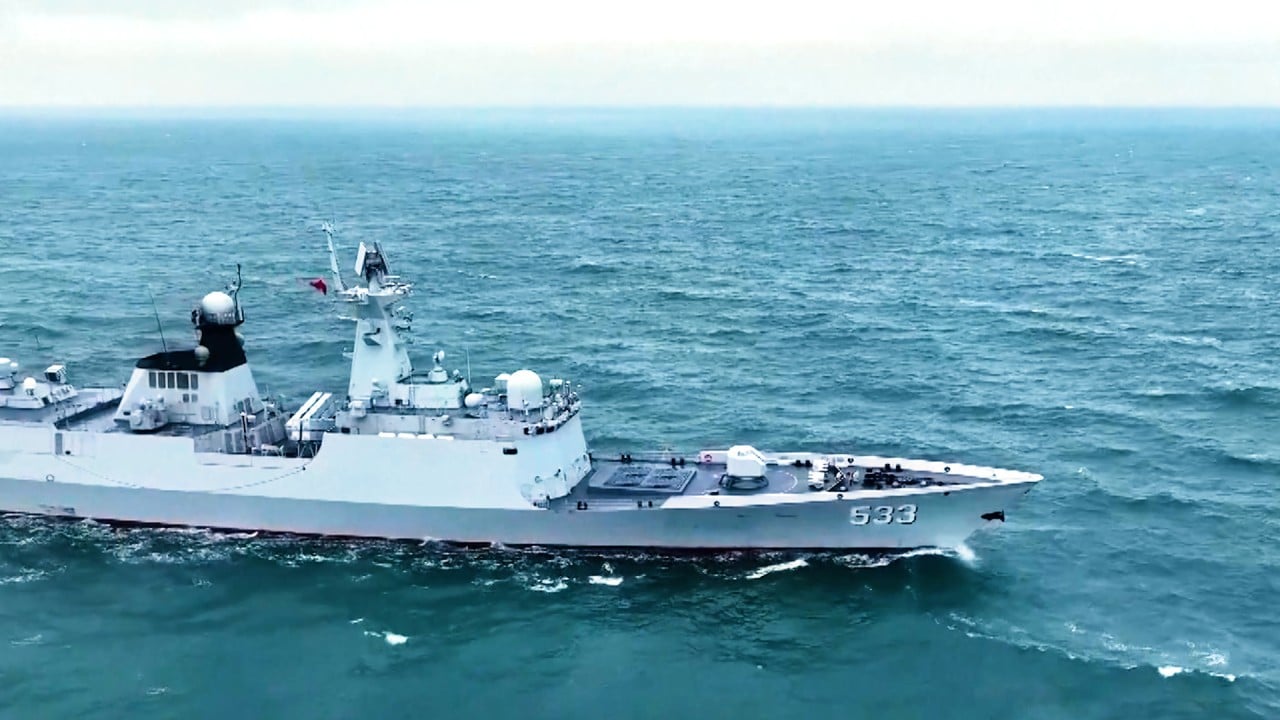Founded in 1999 by Chiang Pin-kung, then chairman of the island’s Council for Economic Planning and Development, the club got its name from the monthly lunch meeting he hosted with top business leaders.
It is the first large business group from Taiwan to visit mainland China after William Lai Ching-te of the Democratic Progressive Party (DPP) took office as leader of the self-ruled island on May 20. He succeeded the DPP’s Tsai Ing-wen, whose two four-year terms saw a marked slide in cross-strait ties.
Their trip comes less than two weeks after Beijing announced the suspension of some preferential tariff arrangements under the cross-strait Economic Cooperation Framework Agreement (ECFA), its only trade pact with Taiwan, as part of a continued response to a “separatist” inauguration speech from Lai.
Song said he had noted the “close attention” paid by the Taiwan business community to the withholding of preferential treatment under the ECFA list.
The two sides “could have upheld mutual trust, accumulated goodwill, and properly resolved the problems arising from the implementation through equal dialogue”, Song told the delegation from Taiwan.
“DPP authorities [have] promoted the ‘Taiwan independence’ separatist fallacy, incited cross-strait confrontation, and adopted discriminatory and unfair practices against mainland exports to Taiwan,” Song said, citing these as the fundamental reasons behind Beijing’s move.
The DPP stance had seriously undermined cross-strait dialogue and the basis for the implementation of the ECFA, Song told the delegation on Tuesday, according to a press release from the TAO.
He also said that the move was aimed at the DPP authorities’ separatist behaviour, “not at the vast number of Taiwan compatriots”.
Song’s meeting with the group came a day ahead of Beijing’s announcement of 20 measures to boost cross-strait integration in the education sector.
The 1992 consensus and the 2010 cross-strait ECFA were both signed when the Beijing-friendly Kuomintang governed Taiwan.
Due to take effect on Saturday, the reimposed import tariffs will apply to 134 products from Taiwan, including dozens of chemicals and related goods, lithium-ion batteries and woven fabrics.
Lai’s office has described the move as “typical Chinese economic coercion” which would not help improve relations across the Taiwan Strait.
Beijing says tariff cuts and exemptions obtained by Taiwan under the ECFA have reached US$10.101 billion, while Taiwan only granted US$1.1 billion in similar reductions for mainland products.
In interviews with mainland and Taiwanese media, some Third Wednesday Club members said they hoped Beijing would heed their concerns over the latest tariff cut suspensions, and hoped to understand more about the mainland’s latest industrial policies on the mainland.
The team also met Tianjin mayor Zhang Gong upon their arrival on the mainland on Monday, local media reports said.
Beijing sees Taiwan as part of China to be reunited by force if necessary. Most countries, including the United States, Taiwan’s top arms supplier, do not recognise the island as an independent state. However, Washington is opposed to any attempt to take Taiwan by force and is committed to arming it.
Beijing has ramped up cross-strait economic, political and military pressure since Tsai rejected the 1992 consensus after first taking office in 2016.
Amid the continuing trade tensions, Beijing’s education ministry on Wednesday announced 20 measures to make it easier for Taiwanese students and teachers to seek courses and jobs in coastal Fujian province.
The education integration policy is part of Beijing’s blueprint to make Fujian a cross-strait “model zone”, offering an “interconnected living” plan for Taiwan and the southeastern mainland province geographically and culturally closest to the island.
A 21-point blueprint for “peaceful reunification” released in September said Beijing aimed to remove constraints on cross-strait trade and investment, as well as on Taiwanese seeking mainland residency, to make Fujian the first-choice mainland gateway for Taiwanese residents and companies.








